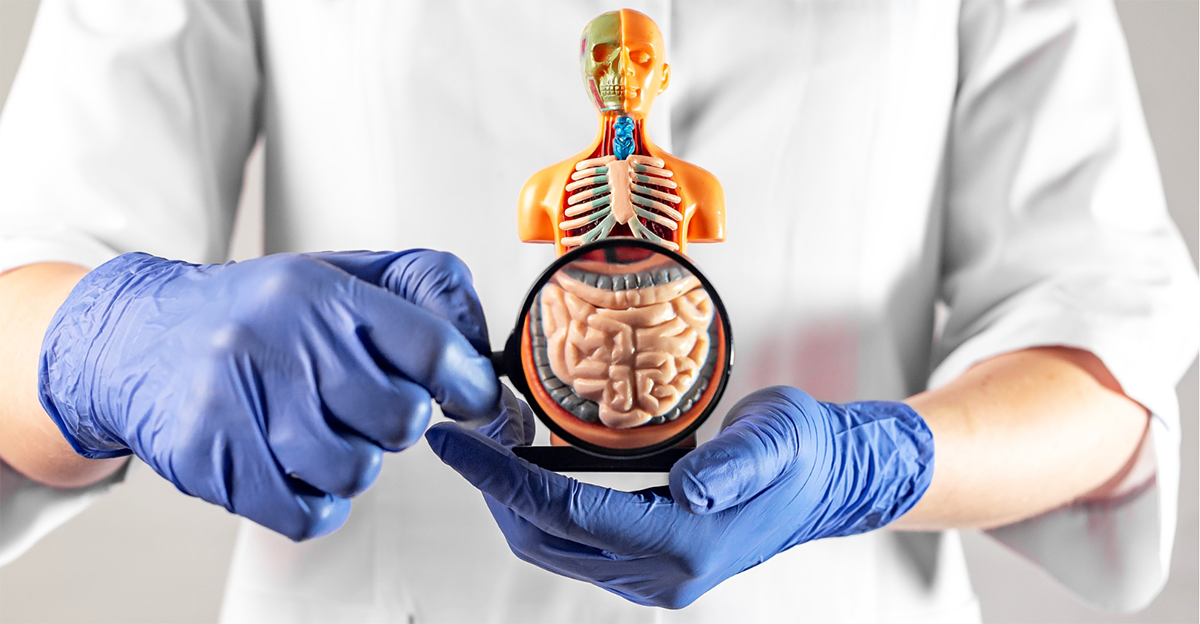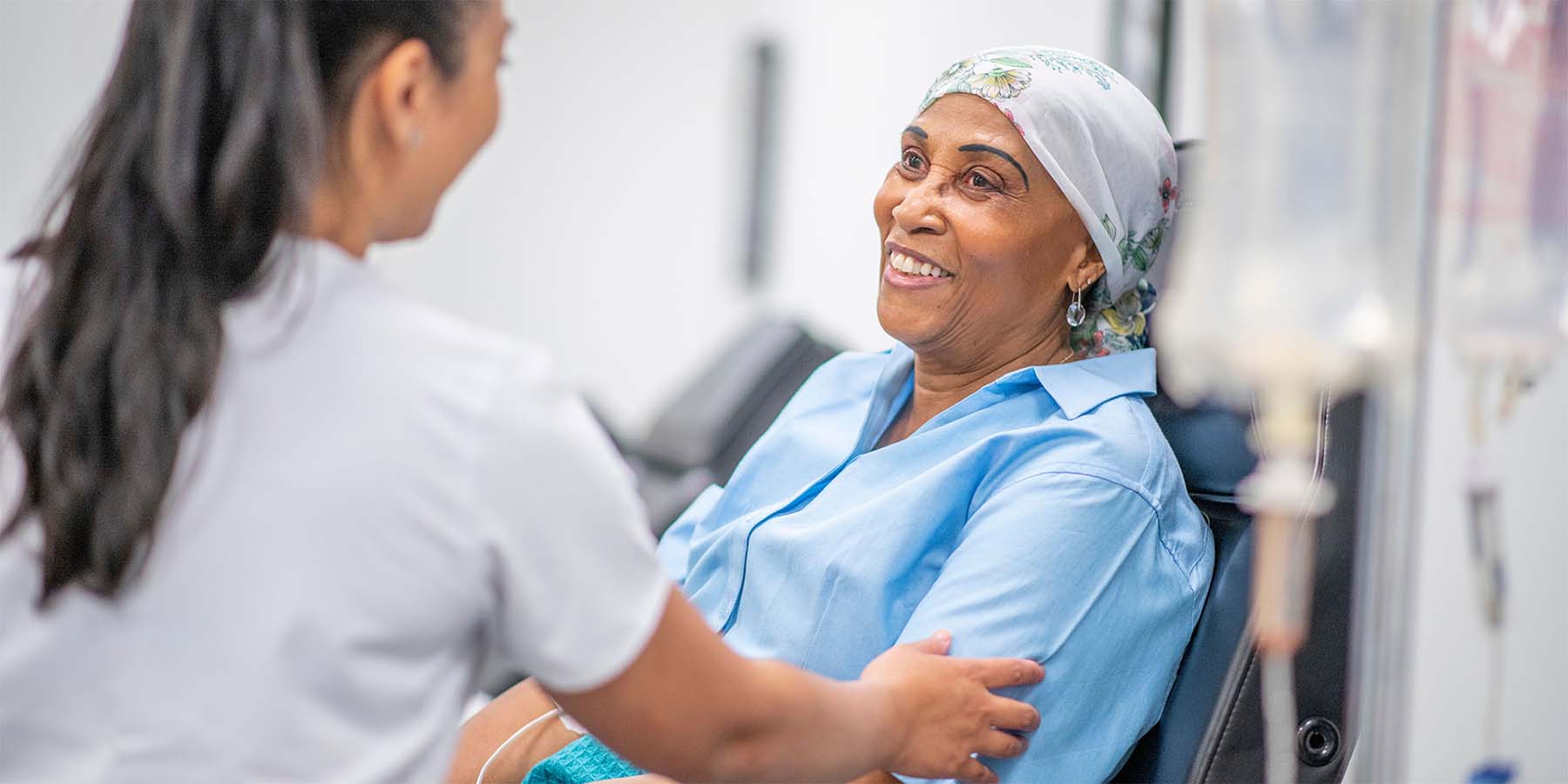Dr. Tomasz Brzozowski: Life-Long Investigations Into the Pathophysiology of the Human Gastrointestinal Tract
Imagine the scenario: The head of your department has approved the funds for your research project, you have your protocol set-up and you decide on an isolation kit. You’ve done the laborious task of collecting your samples and are excited to get your analysis moving along. In an ideal world, completing your laboratory work is a smooth process, with little to no errors or unexpected challenges. You follow the product protocol as written and you get the results you want in a short period of time.
However, after spending a few years in the research field, you know a few curve balls are most likely on the horizon. Tight deadlines and unexpected laboratory challenges are part of the life of a scientist, especially in a research/clinical setting. In those moments of frustration and anxiety, having direct access to product support specialists to help you troubleshoot can make a stressful situation more manageable.
In the scientific research community, expectations for quality post-sale support and service are higher than ever, and why shouldn't they be? Napolean Hill, an American self-help author once said, “It is literally true that you can succeed best and quickest by helping others to succeed.”1
An Interview with Dr. Tomasz Brzozowski
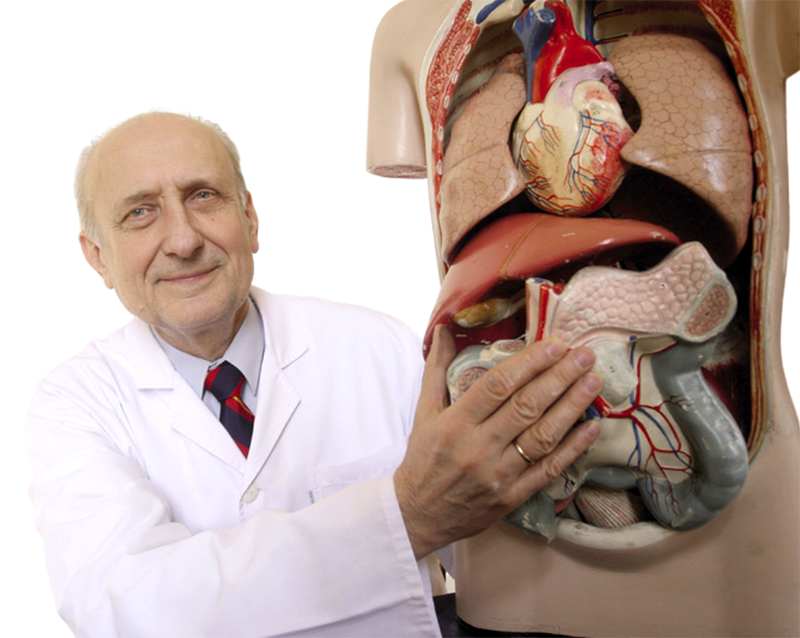
We recently sat down in an interview with scientist and researcher, Dr. Tomasz Brzozowski. Dr. Brzozowski shared some of his life’s most interesting work in the field of science and human physiology. Currently working as a professor of Human Physiology and the Vice-Dean of the Medical Faculty at Jagiellonian University Medical College in Krakow, Poland, Dr. Brzozowski developed a curiosity in pathophysiology of the gastrointestinal tract (GI), with a particular focus on the GI mucosal defense, its protection and the clinical application of treatments within these human disorders.
Dr. Brzozowski shared how he has been influenced, in part, by fascinating stories in gastroenterology. Examples include that of Sir James Black, who received the Nobel Prize for Physiology or Medicine for the development of cimetidine, an H2 receptor antagonist drug used to treat stomach ulcers.2 Tomasz expressed how his interest is based in searching for natural compounds that pose little to no side effects to treat GI diseases. Furthermore, he conveyed how there is growing interest investigating non-steroidal anti-inflammatory drugs to treat patients with GI afflictions and reduce the effects of toxicity induced by steroidal drugs. Currently, clinical trials are being done to explore the use of hydrogen sulfide, an endogenous gaseous substance purported to modulate inflammatory processes within the GI tract.3
Investigating the Human GI Tract
Since 2010, Dr. Brzozowski and his laboratory team have switched their investigative focus to the lower GI tract and inflammatory bowel disease. In particular, they are examining the effects of obesity and mesenteric adipose tissue, also known as "creeping fat", and its mechanistic effects leading to intestinal inflammation. They want to demonstrate the idea that exercise is good for patients that suffer from bowel disease and can accelerate the healing of mucosal damage. At their laboratory in Krakow, Dr. Brzozowski’s team is researching the effects of ulcerative colitis injury in the intestine and investigating different compounds which will accelerate or induce healing of mucosal damage.4
Part of his laboratory workflow involves extracting RNA from samples of abdominal fat tissue excised from obese mice fed a high-fat diet. Fatty tissue, particularly white adipose tissue, can be difficult to digest and prepare for RNA isolation. Without the use of an optimized kit to help breakdown the materials, tissues that have high fat content often lead to a low quality and yield of RNA.
NORBLOG
Want to hear more from Norgen?
Join over 10,000 scientists, bioinformaticians, and researchers who receive our exclusive deals, industry updates, and more, directly to their inbox.
For a limited time, subscribe and SAVE 10% on your next purchase!
SIGN UP
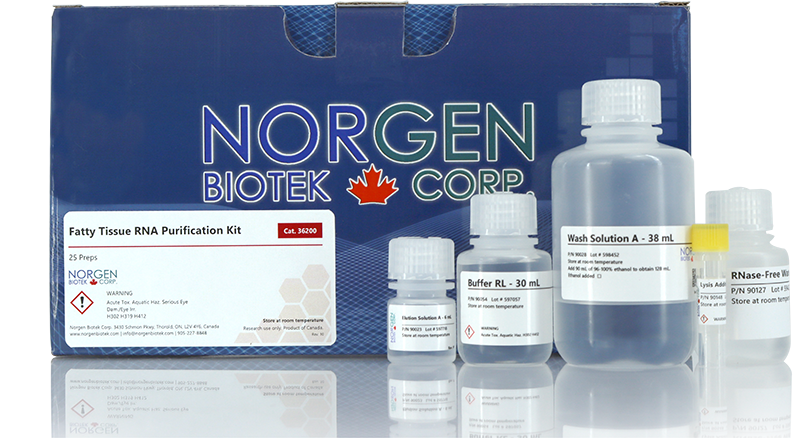
While using Norgen’s Fatty Tissue RNA Purification Kit (Cat. 36200), Dr. Brzozowski was experiencing difficulty with the initial preparation of the sample for RNA extraction since adipose tissue can be tough to homogenize. His laboratory team had performed the initial experiments, and subsequently discovered the procedure had yielded poor results, indicating there was an issue somewhere during the pre-analytical phase. This research had been funded by a National Grant program and, at this time, the deadline for submission was quickly approaching. This is when the group decided to reach out to the tech support team at Norgen Biotek for assistance and a quick resolution.
Post Sale Follow-Up Support
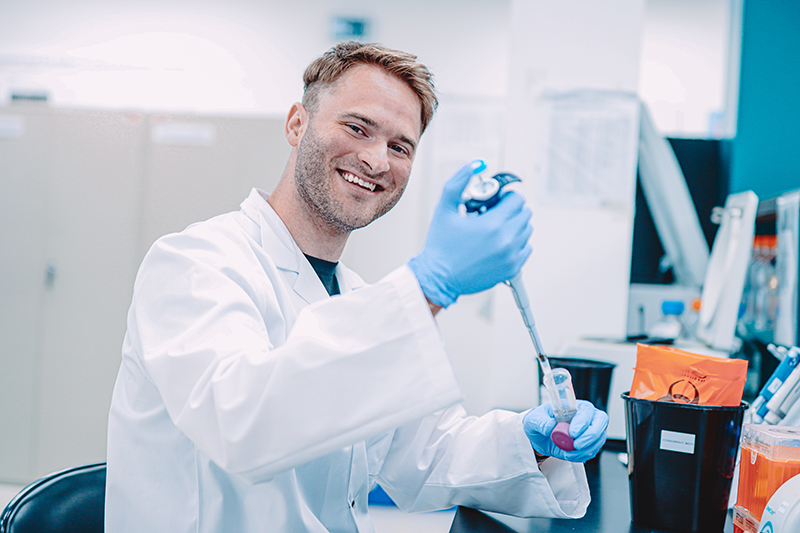
By working with Norgen’s senior research scientist who helped develop the Fatty Tissue RNA Purification Kit (Cat. 36200), Dr. Brzozowski and his team concluded that the use of liquid nitrogen was required during preprocessing when working with “real” fat tissue samples such as white adipose tissue. The collaborative effort enabled the Polish team to attain successful and measurable results in the time they needed it. At Norgen, we believe that a sale should never be just a sale. Post-sale customer service is essential in the research community and establishes a framework for success across all fields. We take pride in offering comprehensive customer and technical support to all of our customers, because seeing the success of scientists and researchers is a success for us as well.
Continue reading for more on our interview with Dr. Brzozowski.
Q: What is your most important scientific finding to date?
“During the 1990’s, I was fascinated with the discovery of prostaglandin, a lipid compound that, when administered in small doses, was shown to protect the stomach from injury, even by boiling water. Research found that inhibition of gastric acid secretion4 was able to completely protect stomach damage by aspirin or ethanol…we looked into many mediators of how prostaglandin can do this activity. I also investigated the effects of epidermal growth factor (EGF) on the pathogenesis of stress ulcerations. We looked into how EGF supplementation affected animals that were EGF-deficient and concluded that injection of EGF accelerated the healing process and protected gastric mucosa against various ulcerogens.”5 - Dr. Tomasz Brzozowski
Q: What advice can you offer to young aspiring researchers in the field?
“You cannot lose sight in your profession, try to always stick to literature to be on track all the time with the latest information. Enjoy the scientific research journey, and try to introduce [latest advancements] into clinical practice as much as you can…being active means keeping yourself updated with the latest science as it is constantly evolving. Keep a learning spirit, keep developing yourself no matter your professional title, enrich yourself.” - Dr. Tomasz Brzozowski
You can read more about the past and current research of Dr. Tomasz Brzozowski at this OrchID portal . (https://orcid.org/0000-0002-5805-0065)
-
Napoleon Hill quotes. BrainyQuote.
https://www.brainyquote.com/quotes/napoleon_hill_385887. Accessed July 27, 2022. -
Sir James W. Black Facts. NobelPrize.org.
https://www.nobelprize.org/prizes/medicine/1988/black/facts/.Accessed July 27, 2022. -
Wallace JL. Hydrogen sulfide-releasing anti-inflammatory drugs. Trends in Pharmacological Sciences. 2007;28(10):501-505.
doi:10.1016/j.tips.2007.09.003 -
Bilski J, Mazur-Bialy A, Wojcik D, et al. Role of obesity, mesenteric adipose tissue, and adipokines in inflammatory bowel diseases. Biomolecules. 2019;9(12):780..
doi:10.3390/biom9120780 -
Konturek PK, Brzozowski T, Konturek SJ, Dembiński A. Role of epidermal growth factor, prostaglandin, and sulfhydryls in stress-induced gastric lesions. Gastroenterology. 1990;99(6):1607-1615.
doi:10.1016/0016-5085(90)90464-c
